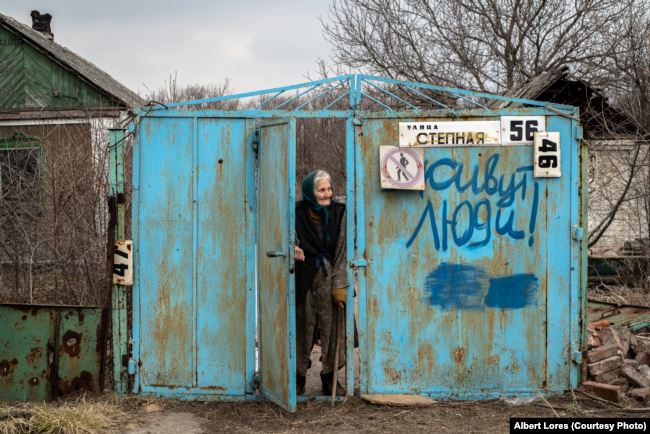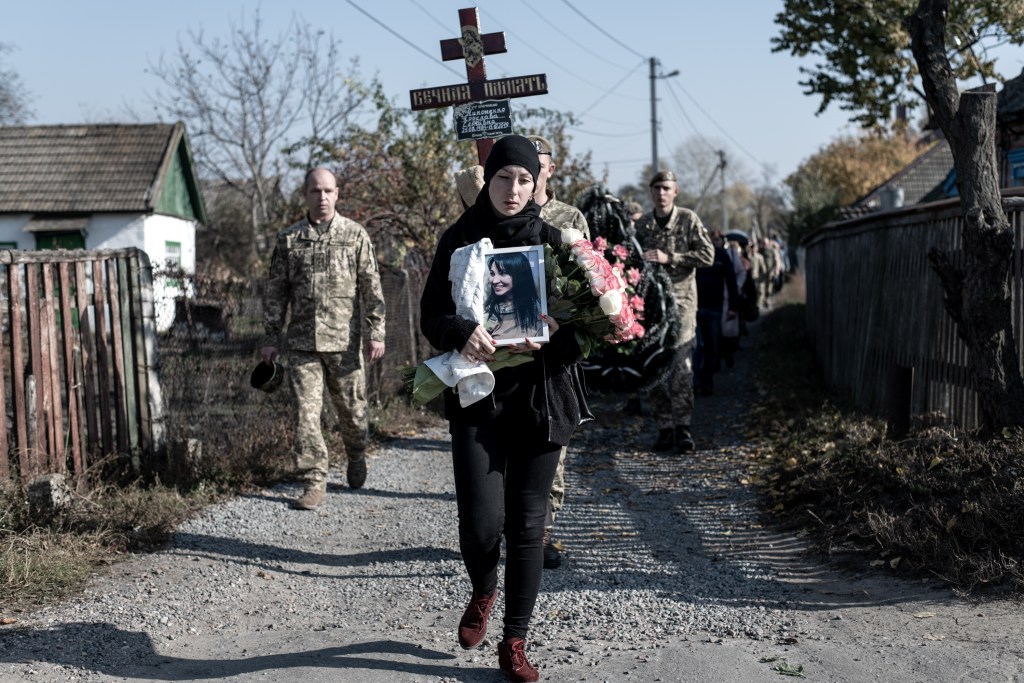The implementation of the so-called Steinmeier formula – which, despite resistance from a substantial part of Ukrainian society, is being pushed by the Ukrainian government – raises a number of concerns. Here are some of the most important ones.
The security situation which is a prerequisite for the implementation of the conflict settlement plan under the Minsk Agreements is far from ideal.
Shelling continues, including in the disengagement areas. In the six months after the disengagement began, 43 Ukrainian servicemen were killed – as many as in the previous six months.
Nor does the fact that, according to the OSCE Special Monitoring Mission (SMM), Russian proxies have installed new military posts near the village of Petrivske, contrary to the agreement on disengagement of forces. In addition to this, fighters have set up new stationary firing points on the high ground along the disengagement line in Stanytsia Luhanska, which enables effective shelling not only of Stanytsia but of nearby settlements as well.
Our sources in the occupied territories report intensive movement of armed formations near the contact line. Residents of the Russian Voronezh and Rostov regions living near the Ukrainian border have reported military equipment being moved to the border. While this may be due to the rotation of military units, the Russian Federation doesn’t reduce its troops near the Ukrainian border.
As a reminder, in recent years, the contact line has not changed and has been effectively controlled by the Ukrainian forces. The intensity of hostilities has consistently decreased over the last three years, and the number of casualties in 2019 has been the lowest in five years.
Pulling the Ukrainian army and police forces farther away from the contact line will put hundreds of pro-Ukrainian activists in danger. Some of them have already been receiving threats.
It is well known from experience that unarmed police are unable to protect people even from domestic violence. As an example, two years ago in the gray zone between the checkpoints, former fighters assaulted their two competitors, residents of Stanytsia Luhanska: they beat one of the men to death and kidnapped the other one, who is still held in the basement prison of the so-called "LNR MGB" on bogus charges of espionage.
At the time of the incident, the grey zone was just a few hundred meters wide, but should the new disengagement plan be implemented, this area will be 450 km long and 3 to 5 km wide and will be guarded by Ukrainian police only in the daytime, leaving the residents of dozens of villages and cities defenseless at night.

Unarmed police officers will not be able to effectively respond even to domestic violence incidents, let alone planned attacks by hostile local or subversive groups. We received no response from JFO (Joint Forces Operation) representatives as to how residents of the demilitarized zones will be protected in such cases.
There is a risk of significant deterioration in the humanitarian situation for some 105,000 residents of the territories which will be effectively under Ukrainian jurisdiction after the withdrawal of all official armed forces.
Residents of the demilitarized and surrounding areas are already experiencing restrictions on movement. The situation in this respect has drastically deteriorated: both entry to and exit from these areas are unreasonably difficult. Journalists and members of civil society organizations are particularly strictly monitored by the authorities, indicating that the restrictions have little to do with security concerns but aim instead to prevent the leakage of information inconvenient for the government.
Restrictions of movement and less control over demilitarized areas are likely to limit residents' access to education, medical and administrative services, and even to food and drinking water. Few commercial suppliers are keen to deliver goods to areas where the Ukrainian authorities cannot guarantee security and local residents have extremely low purchasing power.

For the same reasons, cash will not flow to those areas, while access to banking services will be limited: even now, mobile bank offices refuse to go to “demilitarized” Katerynyvka. As a result, the inability to access pensions and welfare benefits would affect local residents severely, most of whom depend on such assistance for survival due to unemployment in the combat zone. Indeed, unable to find jobs, most families in frontline settlements live of their retired relatives' pensions.
What's next?
But more importantly, what's next?
Is Europe ready to swallow the pretense of Russian hybrid troops' withdrawal from Donbas and a parody of democratic elections? Nothing so far indicates Russia's genuine intention to withdraw its mercenaries and military equipment accumulated in the occupied areas on a scale exceeding the armed forces of some European countries. The Russian President's entourage are not even trying to hide the fact that they do not intend to return the occupied areas to Ukrainian jurisdiction but expect Ukrainian sovereignty to be merely nominal there.
Even if Russia actually withdraws its forces from Donbas and Ukraine regains control over the lost part of its state border (which I personally do not believe will happen), elections in a society that has been traumatized by five years of harsh repression and absence of any political competition, independent media or even non-governmental associations will only become possible after at least several years of hard work by the government and civil society to bring the public atmosphere back to normal.
Earlier in history, France and the U.K. had similarly decided the fate of another country, Czechoslovakia, by abandoning it to the mercy of Nazi Germany and hoping to appease the aggressor. What they had not anticipated was that Hitler's ambitions were far greater than that. It cost France five years under Nazi occupation, and Europe lost forty million lives.Democratic elections in Donbas will only become possible after at least several years of hard work by the government and civil society to bring the public atmosphere back to normal.
We should not repeat past mistakes. We should not underestimate Putin’s ambitions. We should not make concessions to the Kremlin regime that openly despises the fundamental values and principles of the Euro-Atlantic civilization and seeks to redefine the existing world order. The regime perceives each of our concessions as a sign of weakness and an invitation to further expansion.
A systematic solution to the problems caused by the aggressive foreign policies of the Russian Federation would necessitate dismantling Putin's regime. Rather than flirting with it, this would require further steps towards Russia's international isolation and stronger sanctions which could weaken the Russian economy and eventually strip the regime of the resources needed for continued expansion and undermine its legitimacy in the eyes of Russian society.
I am afraid that, given the plans of Russia's current political leadership, this may be the most humane of all possible strategies capable of ending the crisis. Other options might cost the world much more.
Read also:
- Why negotiate? Expectations for the Normandy Four meeting
- Hybrid War in Ukraine – predictions for 2019 and beyond
- Leaked Kremlin emails show Minsk protocol designed as path to Ukraine’s capitulation – Euromaidan Press report
- What Surkov’s hacked emails tell about Russia’s hybrid war against Ukraine
- Donbas Lost Generation: a journey among the victims of the Russo-Ukrainian War





